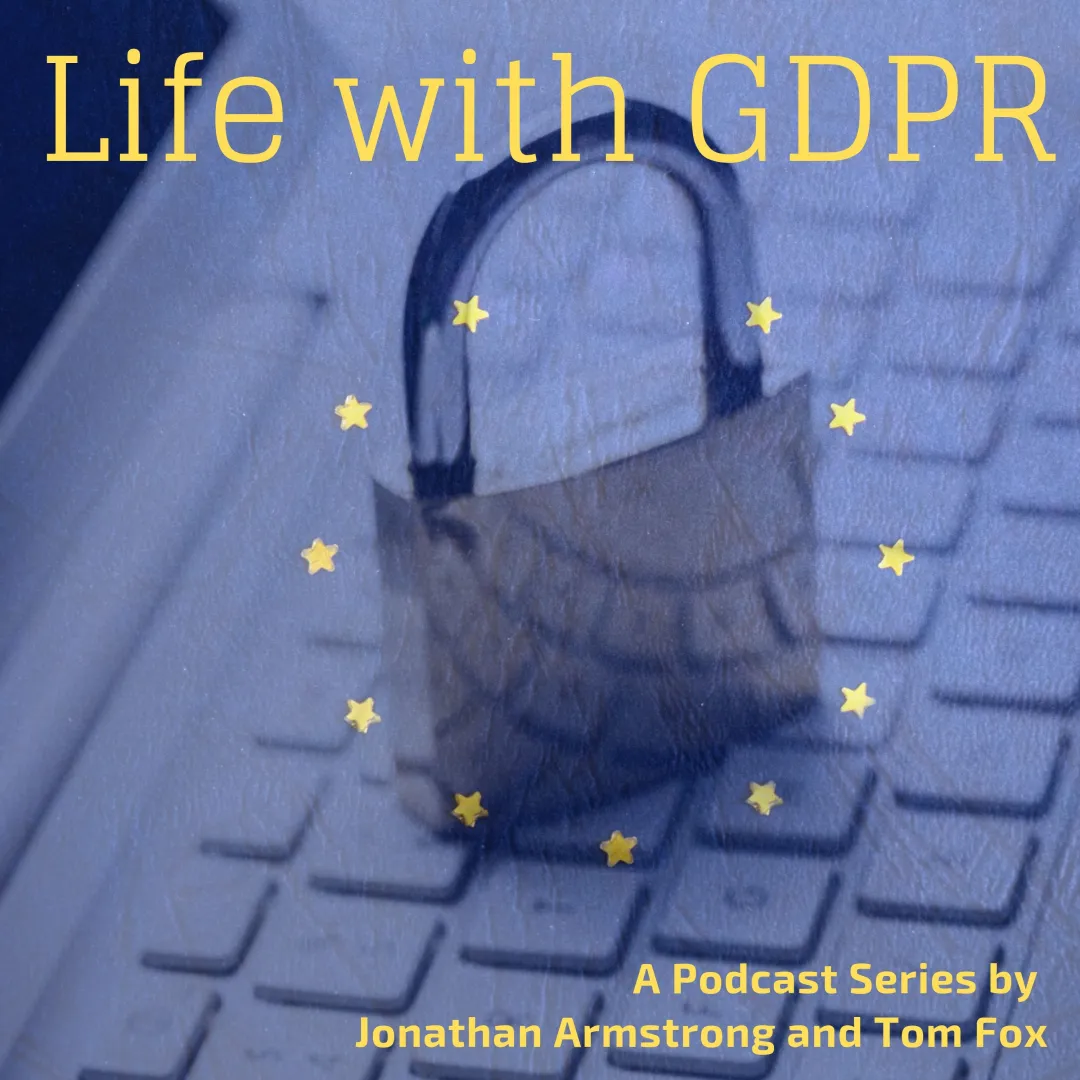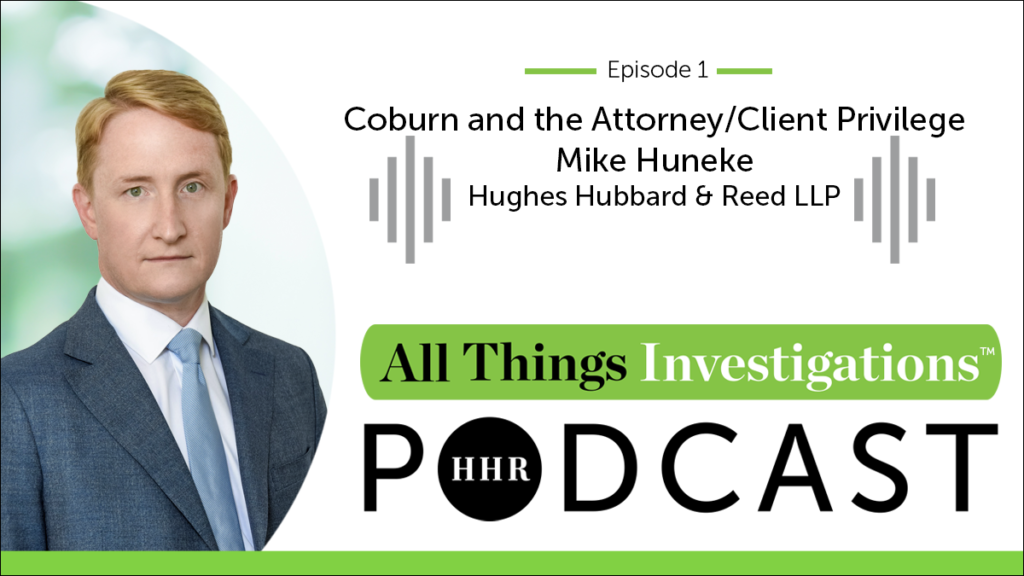In the Evolving Attorney-Client Privilege: Business Entities”, David E. Keltner wrote that under US federal law, the attorney/client applies when the following are present:
- A client is seeking legal advice or a lawyer’s services;
- The person to whom the communication is made is a lawyer or his or her representative;
- The communication relates to a fact disclosed from a client (a representative) to a lawyer (a representative);
- Strangers are not present;
- A client requires confidentiality.
The significance of meeting each of these five prongs is critical. If they are met, “Absent privilege, once the attorney-client privilege is properly invoked – the privilege is absolute.” However, the failure to meet Prong 1 doomed former co-CEO Sigelman’s efforts, as he was not seeking legal advice. Former GC Weisman flew to Sigelman’s home to confront him over the fact that the FBI had come to his house asking questions about the payments made in Columbia. Finally, it is important to note that the attorney/client privilege belongs to the corporation and not to any one individual. The attorney/client privilege can be waived. While there is a general recognition that “only an authorized agent of a corporation may waive the privilege of the corporation,” Keltner advises that the “most frequently encountered instances of losing the privilege through selective disclosure” are in responding to a government investigation, supplying information to a government agency; information disclosed in certain Securities and Exchange Commission (SEC) filings or other required financial disclosures; in certain circumstances disclosures to external corporate auditors or accounting responses; any disclosure made to a third party not affiliated with a lawyer; and insurance disclosures. How should we apply the above to the situation faced by former co-CEO Sigelman? Was he meeting with his lawyer or seeking legal advice? As reported by Joel Schectman in the Wall Street Journal (WSJ), in an article entitled “Secret Informant Recordings to be Allowed in PetroTiger Case,” the trial court distinguished between having an attorney/client relationship from the attorney/client privilege. Schectman reported, “a judge in U.S. District Court in Camden said last week that having an attorney-client relationship isn’t enough to make all conversations privileged–a client needs to be actively seeking legal advice. “I cannot find a shred of indication that Weisman is there to give legal advice to Sigelman,” Judge Joseph Irenas said, “or the converse, that Sigelman was seeking legal advice from Weisman.” Interestingly the trial court did not opine on the question of who the client was in this situation. My experience is that most CEO-types think of a GC as their lawyer. That view is also misplaced as a GC works for a company, and the client is the corporation. While he did not have to reach the question of who the client was in the Sigelman/Weisman meeting, the trial court might have allowed the current corporate owners of PetroTiger to waive any privilege asserted by a former co-CEO. Schectman quoted G. Derek Andreson, a lawyer specializing in the Foreign Corrupt Practices Act, that “Attorney-client privilege is often misinterpreted as broader than it is.” Did the FBI take advantage of some special relationship between Sigelman and Weisman? As reported in the article, in his brief attempt to suppress the evidence, Sigelman’s counsel said, “Messrs. Sigelman and Weisman had a “long-standing attorney-client relationship, one that fostered candor and trust between them–as any good attorney-client relationship should. The government took advantage of this trust.” Such would seem to be the nature of wiring up cooperating witnesses; if they cannot engender trust with those they are speaking to and surreptitiously taping, it would seem they are of little use to authorities. For the attorney/client privilege to be of use to you, certain hard work must be done to establish the attorney/client privilege in the corporate context. The five prongs listed by Keltner must be fulfilled for the privilege to apply. Simply chatting with your lawyer or company’s lawyer will not invoke the privilege or protect you. In addition to the attorney/client privilege, another privilege can come into play around internal investigations. It is the attorney/work product privilege. Keltner noted, “The attorney-client privilege and the attorney work-product doctrine are often asserted interchangeably. While there is some overlap between the two, the attorney-client privilege is significantly different from the attorney work-product doctrine.” Moreover, as “codified in Fed R.Civ. P. 26(b)(3), [the attorney/work product] provides a qualified protection to materials prepared by party’s counsel or other representatives in anticipation of litigation.” The doctrine exists “because it permits lawyers to “work with a certain degree of privacy, free from unnecessary intrusion by opposing parties . . .” The key is that it be prepared in anticipation of litigation. Unlike the attorney-client privilege, which belongs to a client, work-product immunity may be asserted by the lawyer or the client. While the attorney-client privilege is included in the Rules of Evidence, the work-product doctrine is included in the Rules of Civil Procedure in the series relating to discovery. This makes it problematic to assert in the context of a criminal investigation. For in-house lawyers in the UK or EU countries, however, there is no such work product privilege. Two recent examples highlighted this key difference between the US, UK, and EU legal systems. First was the raid by German prosecutors of Volkswagen’s outside counsel, Jones Day’s offices, for information surrounding the law firm’s investigation of the company’s emissions-testing scandal. The raid was based on a court-issued subpoena. The second is the recent judicial decision out of the UK involving Eurasian Natural Resources Corp. (ENRC). The UK’s highest court held that the company must produce to the UK’s Serious Fraud Office (SFO) documents the company claimed were privileged, including attorneys’ notes of employee interviews conducted during the company’s internal investigation. The SFO sought the documents as part of its criminal investigation into fraud, bribery, and corruption allegations. The court largely rejected ENRC’s claims of the work product privilege, holding that it does not apply when a document is not prepared for the sole or dominant purpose of conducting adversarial litigation. ENRC was required to produce the bulk of the contested documents because the investigation was a fact-finding exercise.
Three Key Takeaways:
- Note the differences in the attorney/client and work product privileges.
- Both privileges can be waived intentionally or through negligent conduct.
- Take care of attorney work products outside the US, where there may be no privilege.
Remember who can assert privileges in an investigation and who can waive them.









